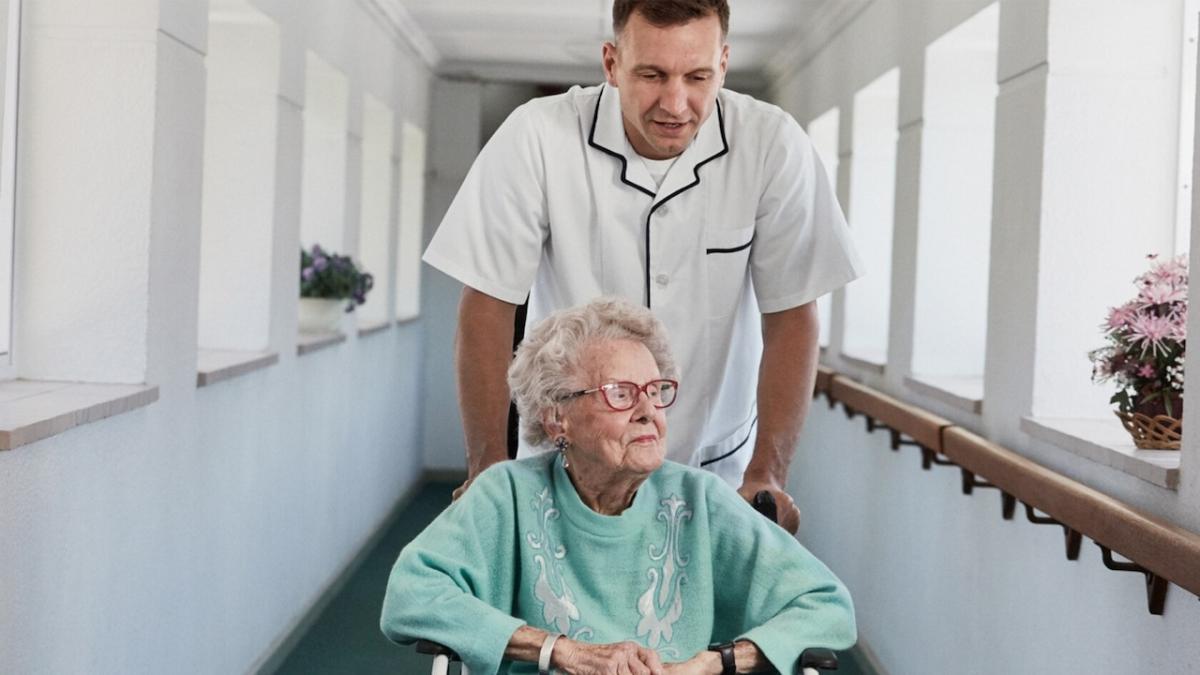Essity Hygiene and Health Report 2023-2024: The Care Economy
Advancing Health and Well-being: Through Care, Prevention, and Gender Equality

Originally published on Essity.com
The care economy
The care economy plays a crucial role in society in accelerating overall health and well-being as well as in shaping and creating resilience. The global demographic shift, with a rapidly growing older population, increases the need for care, and places pressure on an already strained care economy. Yet there is an opportunity for new practices and innovation within the care economy to make a big positive impact. More people will be able to look after themselves at an older age and the demand for care workers will also increase, including both professional and family caregivers. At the same time the financing of public healthcare systems is impacted by more elderly people in need and potentially fewer younger people in the work force. Globally, countries are witnessing a care gap, meaning there is a deficit in the number of caregivers compared to the growing number of people in need of care. If not addressed properly this deficit can create an unsustainable global care crisis and increase inequalities.1
Smart investments in care and preventive measures will not only strengthen the resilience of healthcare systems and contribute to more sustainable and better care as well as better health and well-being for persons receiving care and caregivers but also strengthen societies’ capacity to recover after disasters and crises.2
"The care economy encompasses direct care activities, such as nursing an ill partner or feeding a baby, and indirect care activities, such as cleaning, cooking and so on. Whether paid or unpaid, direct, or indirect, care work is vital for human well-being and economies and is yet to receive adequate attention in policy formulation."
- Chidi King, Chief of the Gender, Equality, Diversity, and Inclusion Branch at the ILO
Recognizing the value of care
Recognizing and investing in care in a smart way creates value for society, as it contributes to better health and well-being for both care recipients and caregivers. According to UN Women, the care economy contributes to poverty reduction, elimination of inequalities in socioeconomic status, and sustainable and inclusive growth.3 However, the social and economic value that care creates is still not recognized to the extent that it deserves. A shift in mindset is needed; from seeing care investments as mere costs to recognizing them as valuable investments that generate tangible returns in terms of personal well-being and patient outcomes, as well as public health, societal and economic progress.
By acknowledging and prioritizing the value of care, societies can foster an environment conducive to inclusive and equitable growth. This could contribute to creating a society where individuals have equal access to opportunities and resources necessary for health and well-being.
Securing the right and best care for individuals increases independence and improves health outcomes. On the individual level, acknowledging the value of care fosters physical, mental, and emotional health. Individuals who experience quality care are more likely to possess higher self-esteem, improved coping mechanisms, and greater life satisfaction, ultimately leading to an enhanced quality of life.4 Care is a fundamental human rights component. According to the UN Declaration of Human Rights, every individual has the right to access healthcare, education, social protection, and active participation in public life.5 In order to uphold these rights, there is a need to foster a care economy that is rooted in human rights principles, responsive to gender disparities, inclusive of individuals with disabilities, and sensitive to the diverse needs of different age groups. Promoting a care economy that considers the diverse care needs of different individuals is essential for ensuring the health and well-being of all.
SDG 3: Ensure healthy lives and promote well-being for all at all ages. Investing in care in a smart way creates value for society, which is essential to ensure good health and well-being for both caregivers and persons receiving care. This drives progress in SDG 3.
What are the returns of investing in the care economy?
- Investing in the care economy fosters a more inclusive and equitable society that benefits the health and well-being of individuals, families, communities, and the overall economy. This sets the foundations for stronger and more sustainable long-term economic growth.6
- Investing in accessible quality care allows individuals to participate fully in the workforce, contributing to productivity and economic stability.7
- Investing in care solutions and preventive measures strengthens the resilience in healthcare systems, which could increase overall health outcomes and avoid looming crises or speed up recovery after crises.8
- Investing in care jobs will increase the general health and well-being of the population while also promoting gender equality, as women make up over 70% of the care workforce.9
Download the Essity 2023-2024 Hygiene and Health Survey to learn more
1ILO (2018) Care work and care jobs for the future of decent work. https://www.ilo.org/wcmsp5/groups/public/---dgreports/---dcomm/--- publ/documents/publication/wcms_633135.pdf
2ILO (2022) How to make the care sector resilient after the pandemic? https://www.ilo.org/brussels/information-resources/news/ WCMS_859044/lang--en/index.htm
3UN Women (2018). Promoting women’s economic empowerment: Recognizing and investing in the care economy. Issue Paper, UN Women, New York.
4Malley, J., D’Amico, F., & Fernandez, J. L. (2019). What is the relationship between the quality of care experience and quality of life outco- mes? Some evidence from long-term home care in England. Social Science & Medicine, 243, 112635.
5UN General Assembly (1948). Universal declaration of human rights. 302(2), 14-25.
6Llena-Nozal, A., Martin, N., & Murtin, F. (2019). The economy of well-being: Creating opportunities for people’s well-being and economic growth.
7UN Women (2018). Promoting women’s economic empowerment: Recognizing and investing in the care economy. Issue Paper, UN Women, New York.
8ILO (2022) How to make the care sector resilient after the pandemic? https://www.ilo.org/brussels/information-resources/news/ WCMS_859044/lang--en/index.htm
9World Health Organization. (2021). Closing the leadership gap: Gender equity and leadership in the global health and care workforce: policy action paper, June 2021

